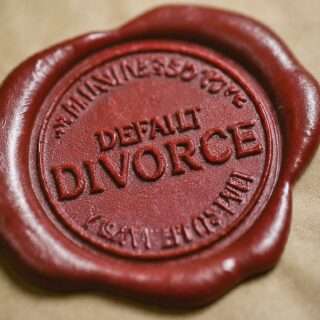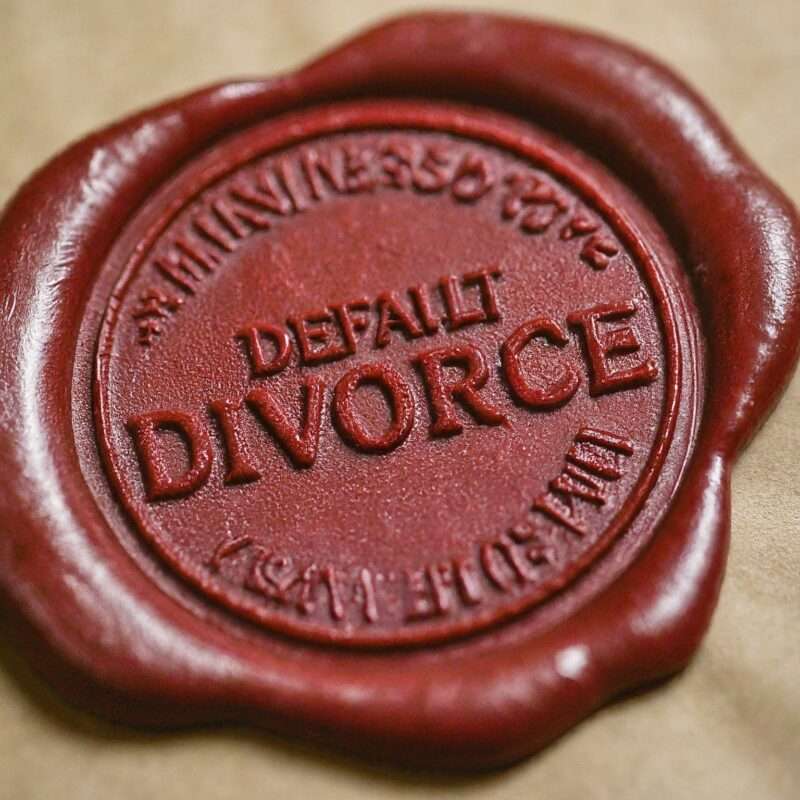
A default divorce in Minnesota is a type of divorce in which one party does not respond or participate in the legal proceedings. This can happen if the party being served with divorce papers does not respond within the required time frame, or if they do not attend court hearings or participate in mediation.
When a default divorce is granted, the court will consider the requests made by the party who did participate in the proceedings as long as they are reasonable and the court finds that there is no just cause for defense. This means that if the party who did not participate does not object to the divorce or the terms proposed by the other party, the court will likely grant the divorce and approve the terms outlined by the participating party.
It’s important to note that this process can only happen if the party who filed for divorce has made a reasonable effort to notify the non-participating party about the proceedings. In some cases, if the court finds that the party who filed for the divorce didn’t make enough effort to notify the other party, the court might dismiss the case.
Cost of a Default Divorce
Default divorces can be less expensive than traditional divorce proceedings, as they do not require as much time and resources to be spent on negotiations and court hearings. However, it’s important to keep in mind that the cost of a divorce can vary depending on the specific circumstances of the case, such as the assets and debts involved, whether there are children, and the complexity of the issues.
If a party does not participate in the divorce proceedings, the party who filed for divorce will likely have a less expensive process. They won’t have to pay for legal representation for the other party, and they might not have to spend much time and money on negotiations or court hearings. However, if the party who filed for divorce has a complex financial situation, they might still have to spend money on hiring experts to value assets and debts.
It’s also important to note that even if the divorce is granted by default, that doesn’t mean that the court will approve any term proposed by the party who filed for the divorce, the court will still evaluate the terms and make a decision based on what is fair and just for both parties.
It’s always a good idea to seek legal advice from a divorce attorney before proceeding with a default divorce, to ensure that you understand the process and the potential costs involved.
Lawyers and Default Divorce
It is not mandatory to have a lawyer to get a default divorce in Minnesota, however, it’s highly recommended to hire one. A divorce attorney can help guide you through the process and ensure that you understand the legal requirements, as well as the potential consequences of a default divorce.
An attorney can help you file the necessary paperwork and make sure that you have met the legal requirements for serving the other party with divorce papers. They can also help you navigate the process of dividing assets and debts, as well as determining child custody and support arrangements.
If the party who filed for the divorce does not have a lawyer, the court may require them to attend a hearing to explain why they are not represented. Also, even though the other party did not participate, the court may still require the party who filed for the divorce to provide evidence of their claim, and if they are not able to do so, the court may dismiss the case.
It’s important to consider that if you proceed with the divorce alone, it might be harder to predict the outcome of the case and the court’s decision could result in an unfavorable outcome for you. Therefore, it’s important to seek legal advice from a divorce attorney before proceeding with a default divorce, to ensure that you understand the process and the potential consequences.



